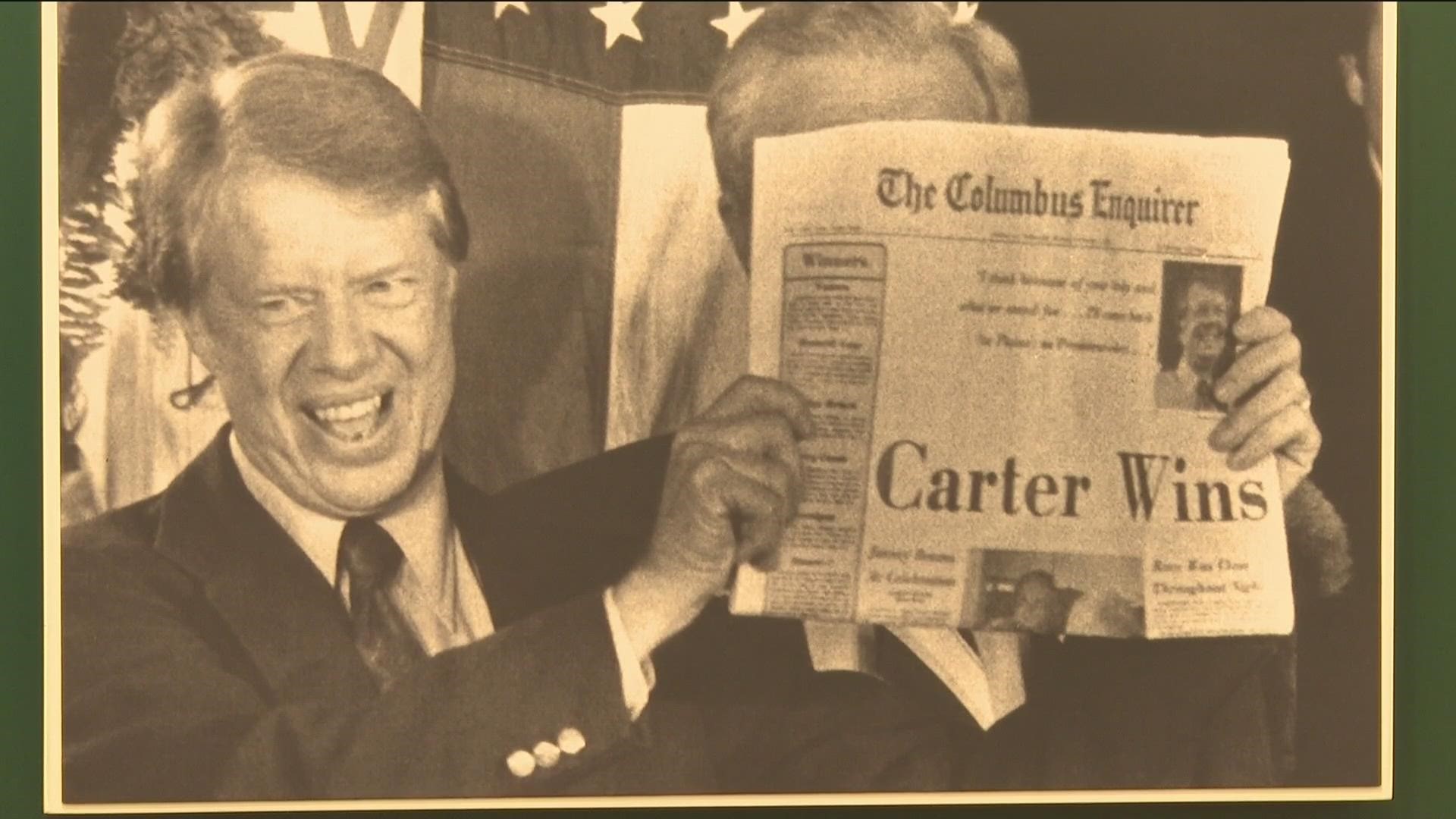ATLANTA — Dr. Meredith Evans is the director of the Jimmy Carter Presidential Library and Museum in Atlanta. It archives federal records and some personal papers from President Jimmy Carter and his family.
The library also tracks Carter's life, from his early days in Plains to his rise in the Navy and in politics, as well as his service after his days in the White House.
"As an archivist, our job is to be as equitable as possible with the records that we have," Evans said. "We tell true stories, so this museum to me is not pro or con, it’s just here are the facts. And I want people to take away from the facts that he is a man of integrity and a humble man who tried his best to make sure everybody has a roof over their head and food at the table.”
Paige Alexander is CEO of the Carter Center, the nonprofit President Carter and his wife, Rosalynn, founded after the presidency. She first met Carter when she was 12 at an event in the Rose Garden. She learned about the Carter Center during her decades of peace and human rights missions.
Alexander took over in mid-2020, during the COVID pandemic and amid social unrest in Atlanta and across the country. She recounted sitting around the Carters' lunch table in Plains, chatting about global affairs while eating a pimento cheese sandwich, tomato soup and apple slices with the former president and first lady.
“President Carter is a giant among men," Alexander said. "At the end of the day, you see the outpouring on social media of people whose lives he touched. Whether it was walking down the aisle on an airplane and shaking everyone’s hand or whether it was truly leaning over someone struggling to have a guinea worm removed from their body, or negotiating a ceasefire in Sudan…making sure we could get into an endemic area in the middle of conflict.”
The Carter Center has done work for decades helping to eradicate Guinea worm disease, among other health challenges, and hold more than 100 elections in over 40 countries around the world. The Carter Center has also played an instrumental role in advocating for mental health, including the Mental Health Parity Act that was recently passed in Georgia.
Up until his decision to go into hospice care at his home, President Carter remained engaged in programs at the Carter Center, asking questions and promoting every person's wellbeing. The center has received thousands of messages per day since last weekend, wishing the former president well.
"He is retired, but I don’t think he’ll ever fully retire," Alexander said. "He’s comfortable with where he is now, and that’s really important to all of us. He was establishing something that really meant a lot to him globally and domestically. Coming from Plains, GA, whether we’re working in Nigeria or Morocco or Uganda, we have the same sense of this is someone who came a from a small village who wants to help a small village. He really touched people’s lives in all spectrums. He is somebody who everyone looks up to. You don’t find many of those anymore.”
Alexander and Evans are living in a full circle moment, as the former is from Atlanta. Evans wrote President Carter a note inviting herself to the white house many years ago. The note has now found a home here at the Carter Library and Museum, where the author is now the director and a student of a life well lived.
"I think he’s a patient man and a man of faith, which is different from just religion," Evans said. "He believes in God and prays and worships, reads the scriptures. That’s a walk that’s part of him, that speaks to his character but also helps him deal with people who may not be as friendly as others. I think President Carter is always willing to share stories, experience, listen and provide advice. I think we’ll miss that.
"Character I think people will miss, particularly in government, that civility that he has that we seem to have lost a little. We say he’s humble, but he really genuinely is. He is engaged genuinely with the people and has a heart for people and people doing well. People might want to make fun of him as a Southerner or peanut farmer or whatever negative thing they think about, but that means he’s a hard worker, that means he cares for people, that means he’s willing to give something away to help you be better and do better.”

